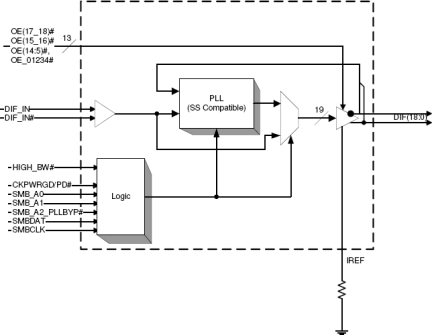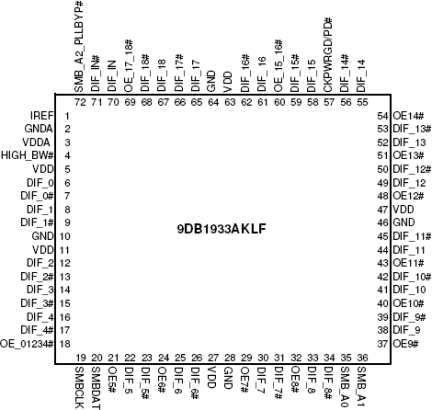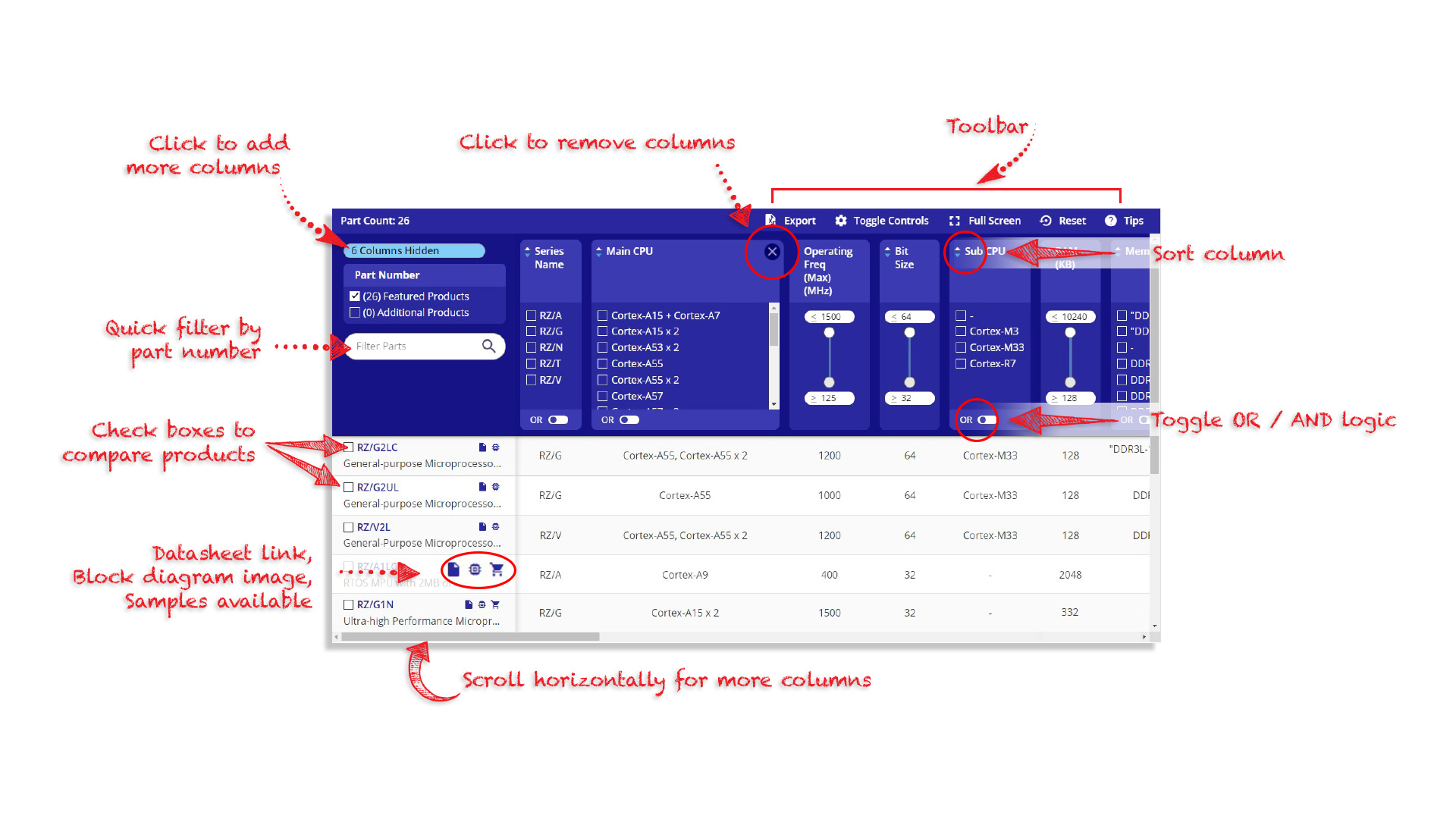Overview
Description
The 9DB1933 zero-delay buffer supports PCIe Gen3 requirements, while being backwards compatible to PCIe Gen2 and Gen1. The 9DB1933 is driven by a differential SRC output pair from an IDT 932S421, 932SQ420, or equivalent, main clock generator. It attenuates jitter on the input clock and has a selectable PLL bandwidth to maximize performance in systems with or without Spread-Spectrum clocking.
Features
- 19 - 0.7 V current mode differential HCSL output pairs
- 8 Selectable SMBus Addresses/Multiple devices can share the same SMBus Segment
- 11 dedicated and 3 group OE# pins/Hardware control of the outputs
- PLL or bypass mode/PLL can dejitter incoming clock
- Selectable PLL bandwidth/minimizes jitter peaking in downstream PLL's
- Spread spectrum compatible, tracks spreading input clock for low EMI
- SMBus Interface, unused outputs can be disabled
- Supports undriven differential outputs in Power Down mode for power management
- Cycle-to-cycle jitter <50 ps
- Output-to-output skew < 150 ps
- PCIe Gen3 phase jitter < 1.0 ps RMS
Comparison
Applications
Design & Development
Models
ECAD Models
Schematic symbols, PCB footprints, and 3D CAD models from SamacSys can be found by clicking on products in the Product Options table. If a symbol or model isn't available, it can be requested directly from the website.

Videos & Training
This is the first video in our PCIe series. In this video, we define PCIe architectures, focusing on common and separate clock architectures. Watch the rest of the video series below where Ron will cover the impact of different timing architectures.
Watch the Video Series Below







